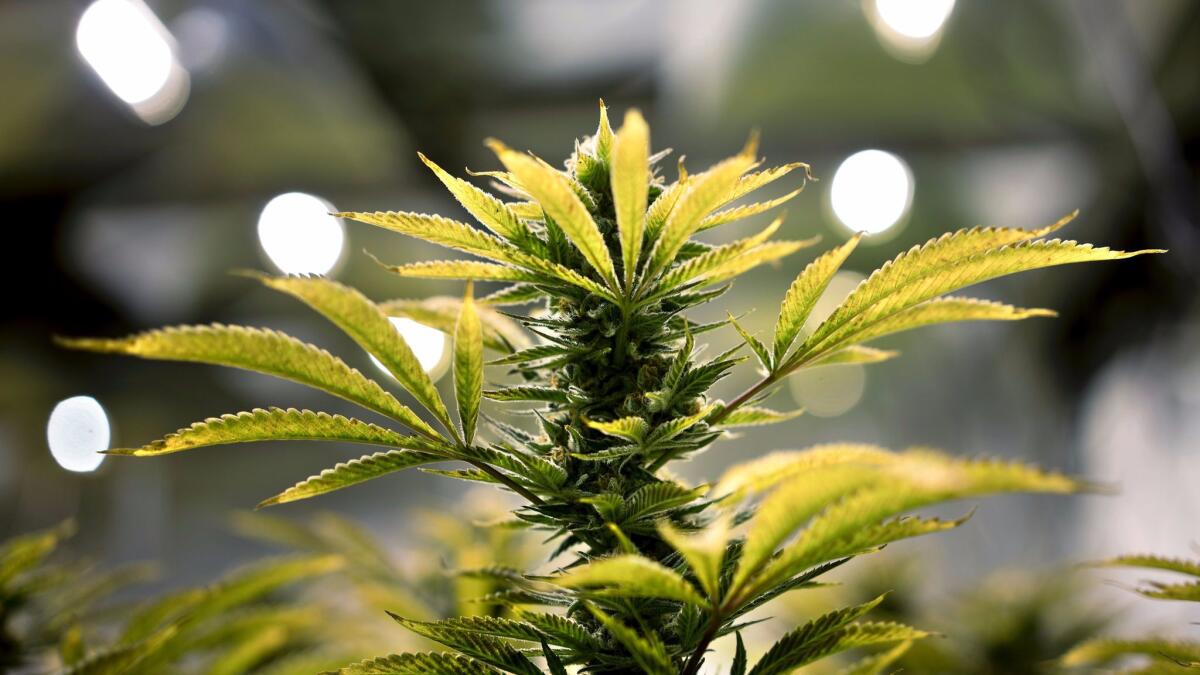Following the example of voters, legislatures are trying to legalize marijuana â with mixed results

The path to legalizing pot often leads the same way: through the ballot box.
Eight states, including California, Colorado and Oregon, have passed voter-approved ballot measures legalizing the purchase and possession of
But a new path toward legalization â lawmaker-inspired reforms â is emerging.
The shift is, perhaps, a sign of lawmakers picking up on public opinion. A Pew Research Center survey from October indicated 57% of Americans support legalized marijuana, compared with 37% who want it to remain illegal. A similar Pew survey in 2006 showed almost the opposite â 60% believed it should be illegal, compared with 32% who supported legalization.
This trend also is reflected in many state-level polls, emboldening lawmakers enticed by, among other things, possible tax revenue to move forward with legalization efforts.
Yet while pro-pot measures have advanced in some legislatures, lawmakers and governors still move with a modicum of caution.
How many state legislatures have attempted to legalize marijuana for recreational use in 2017?
A lot.
Lawmakers in 17 states introduced measures to legalize recreational pot for adults and tax its sale. While many of those efforts faltered â some were squashed in committee hearings, while others died during floor votes â pot advocates were right in guessing a regional sweet spot of sorts: the Northeast. So far, Maine and Massachusetts have legalized marijuana through ballot measures, placing pressure on other states â which border or are a short drive away â to act.
Hereâs a look at how the debate over legalizing pot is playing out in three New England states and Delaware:

Delaware
In March, nearly a dozen lawmakers introduced a measure in the House that would legalize recreational marijuana.
The measure has seen some promise.
This month, it cleared a House committee by a 10-2 margin. Itâs now waiting for a vote on the House floor, where the billâs sponsors are trying to corral enough support.

Vermont
The Democratic-controlled Legislature in May passed a measure that allows adults 21 and older to possess and grow up to six marijuana plants beginning in 2018. The measure, however, does not allow pot to be sold in dispensaries.
To be blunt: Itâs a big, historic win for backers of marijuana legalization. No state legislature has passed a law that legalizes marijuana for recreational use.
But it ran into a roadblock Wednesday as Republican Gov. Phil Scott decided to veto the measure. Scott said, among other things, that he wants lawmakers to address penalties surrounding driving while high and to take steps to make sure that legalization doesnât make it easier for minors to access pot. The governor said if these issues are addressed in a special summer session, he will reconsider whether to sign the bill into law.
âIâm not philosophically opposed to ending the prohibition on marijuana,â Scott said.
Proponents of marijuana legalization in Vermont note that a survey by Public Policy Polling in March found that 57% of voters in the state supported legislation that would allow adults to use and possess small amounts of marijuana, while 39% were against it.

Rhode Island
For three years, some lawmakers in the nationâs smallest state have tried to pass measures legalizing marijuana â and for three years, theyâve failed.
But when state Sen. Josh Miller, a Democrat, introduced a measure in February to legalize pot, he assumed his colleagues would vote in favor of it.
Why?
Well, next door in Massachusetts â less than an hourâs drive from anywhere in the state â voters in November passed a measure to legalize marijuana. To Miller, the calculus was simple: Why let Massachusetts rake in all the tax dollars of legal pot? Besides, he knew polls showed that his constituents back legal marijuana.
But his effort hit a roadblock. The bill stalled in the Legislatureâs Judiciary Committee, where his colleagues have held off on taking action at the request of Democratic Gov. Gina Raimondoâs administration.
In April, three of Raimondoâs Cabinet members, including the stateâs health director, wrote a letter to members of the committee asking them instead to support legislation to create a 15-member commission to study the pros and cons of legalization. The commission would look at how states like Colorado and Washington implemented legal pot and report back to Rhode Island lawmakers next year with recommendations on whether to move forward with legalization.
Miller does not agree.
âThis should and needs to happen,â he said last week about legalizing marijuana.

Connecticut
Lawmakers in support of pot legalization have said â like their counterparts in Rhode Island â that they donât want to lose tax dollars to their neighbors in Massachusetts. Even so, the allure of such revenue only goes so far.
Four bills to legalize and tax the sale of marijuana were introduced this year, but each died in committee hearing rooms.
In a last-minute effort, lawmakers this month sought to insert marijuana legalization into a 2018 budget bill. Still, Democratic legislators have conceded that they do not have enough votes in their own caucus to pass the measure.
As the legislative session nears its finale, the marijuana portion likely will be stripped from the budget.
Twitter: @kurtisalee
ALSO
Not-so-high anxiety: States move fast to protect pot industry
California pot czar expects lag time for testing newly legal weed
Just say no to investing in pot, committee advises California judges
Sign up for Essential California
The most important California stories and recommendations in your inbox every morning.
You may occasionally receive promotional content from the Los Angeles Times.








